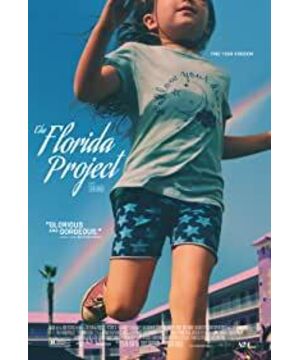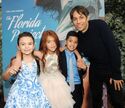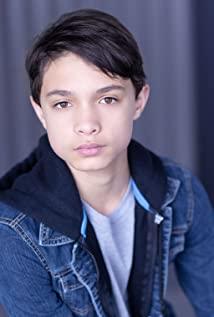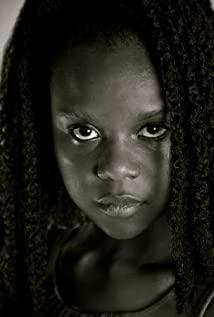You will be moved by the kind of perspective and ideas that only children have. Although the six-year-old Moonee's speech is precocious and adult, his demeanor is still full of childishness. She gasps and draws on glass doors, puts a dead fish in the pool just to revive it, spit on the car downstairs with her playmates, and gets scared when she does something wrong. Because of the child's imagination, the whole bleak situation has become colored. Although she didn't have the money to go to a real Disneyland, Moonee used her imagination to create a Disneyland for herself: she couldn't go to a haunted house, so she took friends to explore an abandoned apartment; Cattle on the grass.
There will also be mixed emotions about this teenager mother. On the one hand, she has problems with children's education and discipline - she never shy away from swearing in front of children, nor does she teach children to take responsibility, she just turned her head with a smile on her face and said "you disgrace me" to the children who got into trouble, and let her The kind hotel manager Bobby has nothing to do; on the other hand, she is as innocent as a child, so she can be friends with her daughter, play with her, and tolerate her child's bad temper to the greatest extent possible. Trying to evaluate her is difficult. Because, like everyone, she is a complex paradox. There is a shining side, and there are times when people "sad for their misfortune and indulge their anger". When she tried to sell perfume to a passerby with Moonee and failed, and she simply begged the other party to give them some money, at that moment, because of the too naked begging gesture, the poverty and embarrassment of life suddenly appeared very directly, my heart It also really hurt.
This film actually chooses a light perspective to show the heaviness of the lives of marginalized groups. And the effect is unexpectedly good - the audience will not be overwhelmed by such a seemingly hopeless life. People saw the desperation and limitations of the marginalized group's life, but also captured a bright color in the gray life: children sharing ice cream together, Halley laughing and flying with her daughter in a supermarket trolley, Disney fireworks in the distance at night... ...like a cheap motel painted lavender in a movie, dim and brilliant. Following the figure of the child, we truly lived in this poor and magical world for two hours, and the originally distant distance was temporarily cancelled. We become them, the "other" in our eyes.
However, the film is not a documentary after all. The bitterness and cruelty in the real world are diluted by the poetry created in the film. At the end of the movie, when Moonee is about to be taken away by child protection agencies, her best friend Jancey drags her and runs to Disney Castle. The story came to an abrupt end here, and at the end of the film, the film chose to let the protagonist of the story live in a pure fairy tale world, reflecting the director's unbearableness. Just as he devised a protector role for the group of kids and Halley, hotel manager Bobbly, asked him to guard the crumbling fairytale castle without asking for anything in return.
Watching this film, it is difficult and necessary for the audience to develop that cheap and powerless sympathy. This is also the original intention of the director to choose the child's perspective. What they need is not so much empathy, but understanding and attention. Rather than simply expressing misery and despair, that innocent optimism is more moving. Like Moonee sitting on that crooked tree eating jam and saying to Jancey: You know what, this is my favorite tree. Because although it fell, it never stopped growing.
View more about The Florida Project reviews











